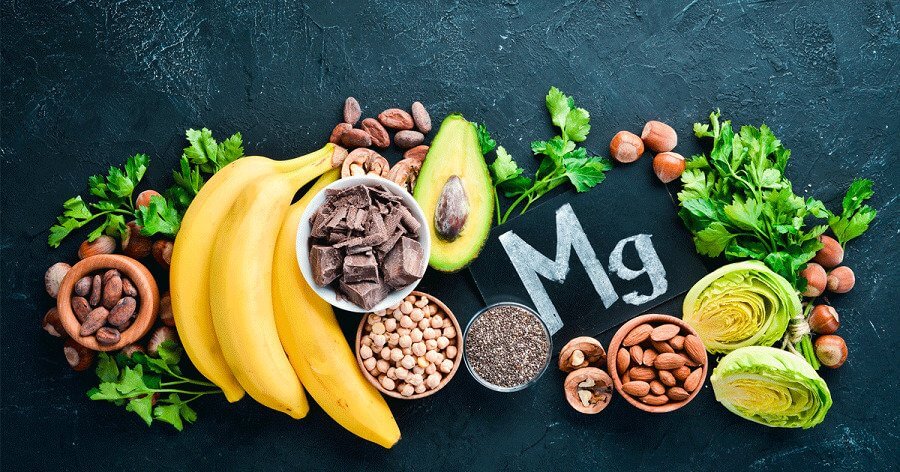Magnesium is the second most concentrated mineral in the body’s cells. It is necessary for the health of the heart and the brain and the function of the muscles.
Magnesium helps maintain normal blood pressure levels and is necessary for hormone synthesis. For these reasons, magnesium is of great importance for men.
In 1995, the World Health Organization recognized a lack of magnesium as a significant risk to men’s health. According to this institution, the average consumption of this mineral is less than half of what the body needs.
Read on to find out how magnesium affects the body and its effects in men. Does magnesium help regulate testosterone, migraines, cramps, and hair loss?
Importance of magnesium for men
Magnesium is a crucial mineral for the proper functioning of a man’s body. It optimizes the use of glucose, activates the formation of proteins, and regulates the processes in the central nervous system and the brain.
In addition, magnesium participates in muscle contraction during exercise and the synthesis of certain hormones. Of particular importance is the effect of magnesium on testosterone levels (in fact, this mineral increases its bioavailability).
A chronic lack of this mineral is associated with a low level of sex hormones in men; In other words, low testosterone may be related to a lack of magnesium in the diet. (1)
In addition, in chronic pathologies (such as diabetes mellitus, cardiovascular disease, and alcoholism), men must control sufficient consuming amounts of magnesium with food.
// Why is magnesium needed:
- Important for protein synthesis
- Regulates the functions of the nervous system
- Necessary for muscle work (including the heart muscles)
- Promotes the excretion of cholesterol
// Read more:
The recommended amount of magnesium for men
The daily magnesium requirement for men is 400-450 mg per day. For women, the figure is 300 mg.
It is important to note that the amount increases when playing sports, weight training, and cardio. Also, drinking alcohol speeds up the removal of magnesium from the body.
Symptoms of a lack of magnesium in men are muscle cramps, high blood pressure, palpitations, headaches, trouble sleeping, fatigue, and a tendency to depression.
It is also essential to know that a lack of magnesium can cause problems with the production of vitamin D and lower levels of testosterone.
Inadequate mineral intake is associated with various diseases: hypertension, atherosclerosis, diabetes, myocardial infarction, and cerebral stroke.
Consuming an adequate amount of magnesium is of great importance if you want to avoid insomnia, stress, seizures, and other symptoms of its deficiency.
Effects of magnesium on testosterone
Starting at the age of 35, the testosterone level in men drops by about 1-2% per year. This decrease, in turn, leads to a loss of muscle mass and hurts libido and potency.
Magnesium, selenium, and zinc are the essential minerals for maintaining healthy testosterone levels in men. The older a man gets, the more critical it is to avoid a lack of this nutrient, especially in men with a low level of physical activity and who have suffered from depression. (2)
Studies suggest that consuming a sufficient amount of magnesium can help increase testosterone.
Although its excess will not cause your values to be higher, consuming products or foods with magnesium is essential to have average values.
In turn, a lack of magnesium can deteriorate the muscles and the cardiovascular system, including the genitals. In addition to the effects on testosterone levels, chronic magnesium deficiency can lead to erectile dysfunction (primarily in men over 40 years of age).
Read more:
- Low Testosterone In Men – Causes, And Symptoms
- Can protein lower or increase testosterone in men?
- Diet for Men – Weight Loss Menu
Magnesium Products
It is believed that no more than 25% of the population receives the necessary amount of minerals daily through food or products.
A typical diet containing meat, potatoes, and wheat products (bread, pasta, cakes) does not cover the required daily amount of magnesium.
Foods rich in magnesium are mainly nuts, seeds, pseudo-cereals (buckwheat and quinoa), brown rice, chocolate, and avocados.
If you can’t reach the recommended amount of magnesium, magnesium is also available in products as over-the-counter supplements.
// Read more:
ZMA Zinc Magnesium Supplements – What are they, and how are they taken?
Quinoa – Benefits and properties
ABSTRACT
Magnesium is a crucial micronutrient for maintaining the optimal health of a man’s body.
One of the consequences of the lack of this mineral is low testosterone in men.
The recommended amount of magnesium per day is about 500 mg, which can be covered by food and supplements.







